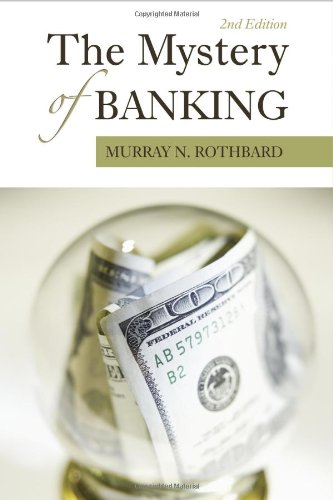As top Federal Reserve officials debated whether there was a housing bubble and what to do about it, then-Chairman Alan Greenspan argued that dissent should be kept secret so that the Fed wouldn’t lose control of the debate to people less well-informed than themselves.
"We run the risk, by laying out the pros and cons of a particular argument, of inducing people to join in on the debate, and in this regard it is possible to lose control of a process that only we fully understand," Greenspan said, according to the transcripts of a March 2004 meeting.
At the same meeting, a Federal Reserve bank president from Atlanta, Jack Guynn, warned that "a number of folks are expressing growing concern about potential overbuilding and worrisome speculation in the real estate markets, especially in Florida. Entire condo projects and upscale residential lots are being pre-sold before any construction, with buyers freely admitting that they have no intention of occupying the units or building on the land but rather are counting on ‘flipping’ the properties – selling them quickly at higher prices."
Had Guynn’s warning been heeded and the housing market cooled, the financial collapse of 2008 could have been avoided. But his comment was kept secret until Friday, when the central bank released the transcripts of Federal Open Market Committee meetings for 2004 and CalculatedRisk spotted it. The transcripts for 2005 to the present are still secret.
"The substantial run-up in house prices, which we have followed in Florida and also see in the populous Northeast and West Coast of the United States, may be at least partially attributable to unusually low mortgage rates influenced by our very accommodative policy," Guynn warned.
 End the Fed
Buy New $9.99
(as of 11:15 UTC - Details)
End the Fed
Buy New $9.99
(as of 11:15 UTC - Details)
But when the Fed released contemporaneous minutes of the meeting, the bank downplayed Guynn’s concerns.
"Reports from some contacts suggested that speculative forces might be boosting housing demand in some parts of the country, with concomitant effects on prices, suggesting the possibility that house prices might be moving into the high end of the range that could be consistent with fundamentals," reads the minutes, which were released to the public several weeks after the meeting.
Note the qualifiers "might be," "suggesting the possibility," "might be," "could be." In the real world that Guynn described there is nothing whatsoever "consistent with fundamentals" that could explain "buyers freely admitting that they have no intention of occupying the units or building on the land but rather are counting on ‘flipping’ the properties."
The release of the transcripts comes at a bad time politically for the Federal Reserve, as it works to prevent Congress from authorizing the Government Accountability Office to audit the central bank.
 How an Economy Grows a...
Best Price: $1.99
Buy New $7.20
(as of 11:05 UTC - Details)
How an Economy Grows a...
Best Price: $1.99
Buy New $7.20
(as of 11:05 UTC - Details)
The audit language has already passed the House, despite White House and Fed opposition, and a Senate amendment by Bernie Sanders (I-Vt.) is gaining momentum, cosponsored as of Monday morning by ten Republicans and five Democrats.
But the Fed also benefits from the timing. "Transcripts of meetings for an entire year are released to the public with a five-year lag," according the Fed’s own policy. Had the transcripts been released on time, they could have influenced the confirmation of Ben Bernanke for a second term as chairman. Meanwhile, the Fed policy of releasing a full year at once deprives the public of transcripts from the first four months of 2005, which are now five years old. A Fed spokeswoman tells HuffPost those transcripts will be available at roughly this time next year.
 The Mystery of Banking
Best Price: $2.23
Buy New $7.57
(as of 07:55 UTC - Details)
The Mystery of Banking
Best Price: $2.23
Buy New $7.57
(as of 07:55 UTC - Details)
At the same March meeting, Bernanke said that he had reviewed the transparency policies of foreign central banks and found that other banks were more forthcoming. "It seems to me that we might want to consider the possibility of providing the public with some type of regular financial stability report, perhaps as part of the Monetary Policy Report to the Congress or in some other existing venue or perhaps as a stand-alone document," Bernanke suggested. More than five years later, with Bernanke now chairman, that report has yet to be made public, though the Fed did create an inter-divisional internal working group on financial stability.
Other than the passing mention of speculation, the March minutes imply that the meeting participants had a rosy outlook on the housing bubble. "Activity in the housing market moderated in January and February from its elevated pace in the fourth quarter. Single-family housing starts and permits stepped down, although both measures remained above their average levels of the first three quarters of 2003," the minutes read. "Overall, expenditures were supported by sizable gains in real disposable personal income and increases in household wealth owing to rising home and equity prices. … Committee members noted that activity in the housing sector, while still quite elevated, had fallen back from its extraordinary pace of late last year."
But there were indications from others that housing prices were getting out of hand. "A second concern is that policy accommodation – and the expectation that it will persist – is distorting asset prices. Most of this distortion is deliberate and a desirable effect of the stance of policy," said Federal Reserve Board Vice Chairman Don Kohn, meaning that low interest rates were artificially propping up housing prices. "But as members of the Committee have been pointing out, it’s hard to escape the suspicion that at least around the margin some prices and price relationships have gone beyond an economically justified response to easy policy. House prices fall into this category."
May 5, 2010




